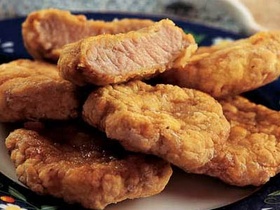|
|

|
Local food:
In Tibetan diet, people take beef and mutton as the staple food while Zanba, butter tea, Tibetan buns, sour milk and barley wine are known by the world as local snacks. With simple cooking methods, quite a few tourists paying a visit at the restaurants or homes are apparently not accustomed to the odd flavor out of the meal in that case that the food ingredients are cooked without too much seasonings presenting a raw taste. However, Sichuan food has been spread widely, if you have little tolerance about Tibetan food, there is nothing worth worrying. In addition to Tibetan food, Deji Road and Beijing Road are filled with regional cuisines in profusion where whatever Nepali food, Indian food or western food get easy found in Lhasa.
|
Zangba is one of the staple foods eaten by locals. When grind the fried-down dry green wheat into powder, Zanba is half-prepared. The typical way to eat Zanba for most of natives is first to pour a little of butter tea into a bowl then add some Zanba flour, stir the mixture evenly by a finger until sticky enough to make balls in Tibet called “bā” which means the cooking process is finished to eat. Another way is to cook Zanba like congee put into seldom wild vegetables and meat which in Tibetan is named as “tǔbā”.
In addition to the well-known food, there are many snacks or delicacies unfamiliar with outside world: Fried Sheep Lung, steamed beef tongue, quick-fried lamb, Xiahe tendons, bulging pig liver, braised Majue pork and boiled sheep spleen with sheep oil. From the point of the food ingredients, it is easy to find out that the reason why Tibetan food plays an important role among the diets of the minorities where all raw materials are totally selected from the nature of the plateau and keep the essence inside without combination of complex cooking methods which could draw the nutrition away.
|